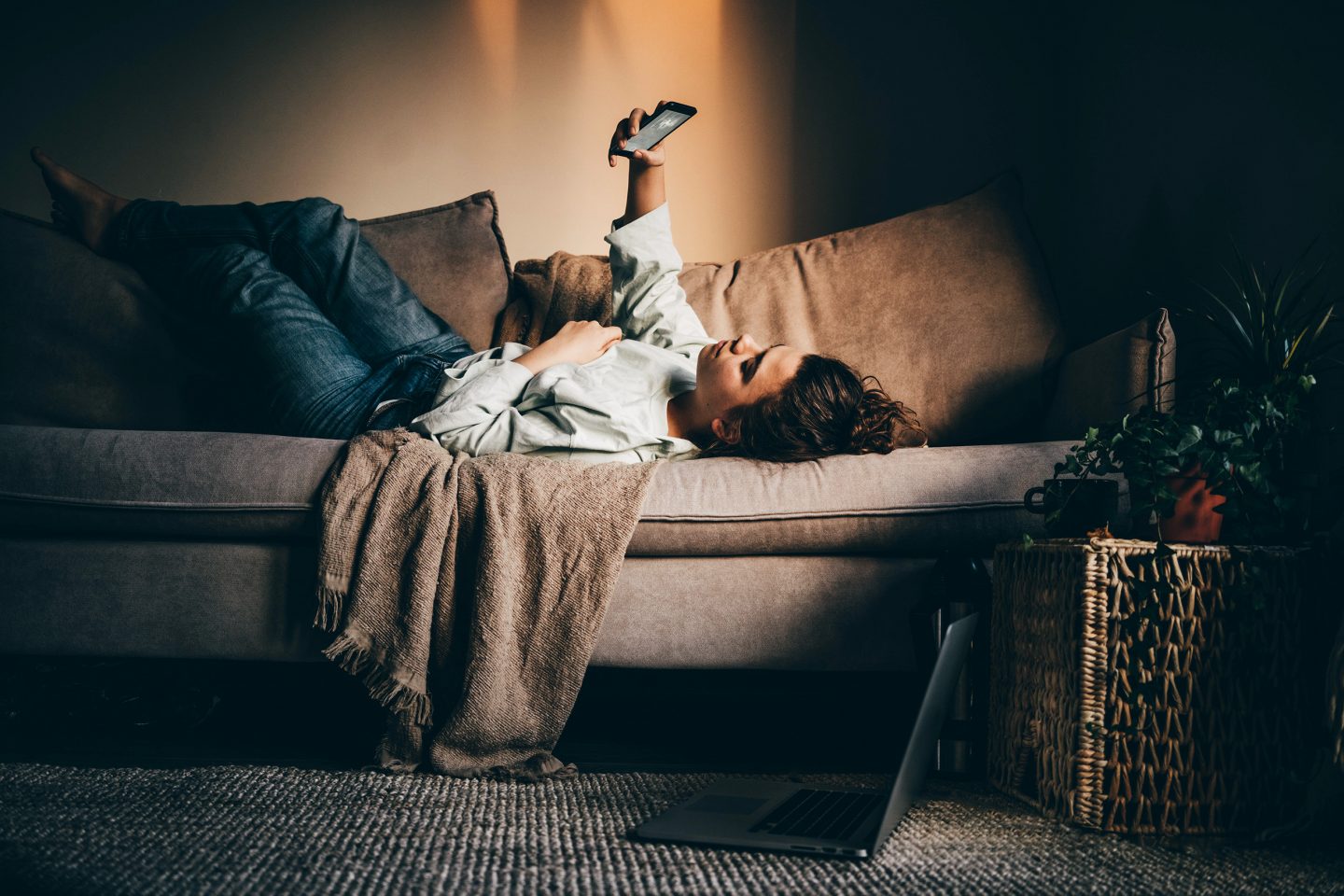Bursting the COVID-19 bubble

The statistics for people reporting low states of mental health as a result of the COVID-19 changes are sobering. And although technology is helping, the ultimate remedies must be personal to be effective.
“The first week in particular was this to-ing and fro-ing between literally sitting on the couch, not being able to get off the couch or just going ‘Nah, I don’t want to get out of bed today’,” reflects children’s entertainer Michael Mills.
Mills usually works full time with cultural institutions, community programs and as an entertainer at children’s birthdays.
“All of the income stopped. I described it to a friend as a whirling malaise of sadness and anger and a whole lot of things. And really, really challenging.”
Artists have been particularly hard hit by COVID-19 restrictions and Mills’ response to the situation is not uncommon to researchers at South Australian Health and Medical Research Institute (SAHMRI). Their free online wellbeing program Be Well has seen three times as many people reporting low wellbeing.
“It’s definitely a worrying trend,” says Joep van Agteren, research and development lead at the institute’s Wellbeing and Resilience Centre. “[It] is something that we were a little bit surprised by, especially because you think that it’s anxiety and stress that might be the one that would come up first – and they’re significantly up as well. But the fact that there’s [a] 20 to 50 per cent increase in problematic stress and anxiety and [a] 22 per cent increase in depressive symptoms is something that we are watching very closely.”
The Be Well program uses technology to assist with mental health and wellbeing by providing training, assessment and reporting for individuals.
“It gives recommendations. So we’re not telling you [that you] have depression or you have anxiety. We’re telling you [you’re] in the anxiety domain, your scores look like they could do with improvement,” explains van Agteren. “Even though it can be confronting, sometimes it’s a rude awakening that might be necessary for someone to make a positive step.”
The program relies on individuals to not only sign up, but to take charge of their mental health care by following the program and seeking further help if needed.
Fiona Kerr is the founder and CEO of the NeuroTech Institute, which is also based at SAHMRI. She is concerned that after our “COVID bubble” we will be seeing more PTSD as a result of what we have experienced.
“No matter the level of tolerance for being on your own, if you haven’t got people that you’ve been able to include in your bubble it takes its toll,” she says. “Direct gaze, sharing space, voice resonance all bond us, and another aspect which we have had to restrict even if we are together, which is really powerful, is touch.
“If we can’t hug, we cut off an incredible vector of chemical connection. That powerful 20 second hug rush of oxytocin is amazing, but even just a warm pat on the arm starts C-fibre attenuation. We have receptors in our skin engaged by the C-fibres, which are slow-acting pathways that run through affective-emotional channels to your brain. They stimulate dopamine, oxytocin, serotonin uptake, opioids. They calm nervous system activity and raise empathy.”
During COVID-19 we have sacrificed interactions with family and friends and instead relied on technology to assist our mental health and keep us connected. Kerr argues this has its benefits but is not sustainable.
“Apps alone don’t work. I could install an app onto my phone and I’m great at the beginning, but quite quickly the behaviour peters out as my willpower lessens,” explains Kerr. “But if we have an ongoing direct interaction, then the chemical boost that I get from you – the hope, the trust, the responsibility we’ve created via the physiological relationship – all assist me to create the needed behaviour or habit change.
“So, when we get to areas like mental health, that has a very direct bearing because the kinds of things that you get from direct interaction assist in all sorts of ways. They create amygdale changes to affect management, they change your level of resilience, your feeling of belonging, even immunological changes and pain response. You change levels of hope, empathy and trust, and lower allostatic load.
“The outcome from the chemical and amygdale changes is that you’re more resilient, more capable of dealing with stress or with unusual new situations because you have more of the chemical and feedback systems that help you modulate anxiety and decrease vulnerability.”
While Mills waits on JobKeeper to get back to work, he is using technology to keep in touch with his audience and even expand it internationally. However, he knows this cannot replace the energy of a live audience.
“Kids to me are the best audience in the world because they’re honest. And if you’re crap, they’ll just go off,” say Mills. “So you’re constantly thinking and adapting and responding. I love that.”